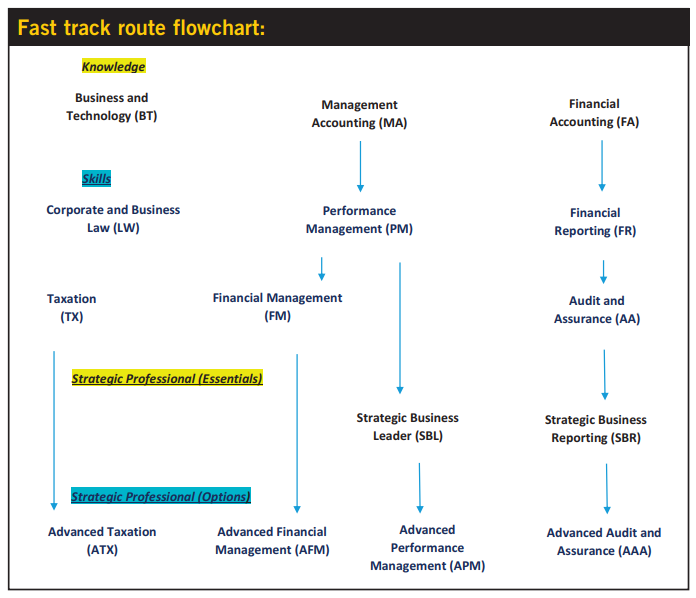September 2021
Brigita Petrova explains how you should decide in which order you take the exams.
Hi there, ACCA student, how is your journey going so far? Are you busy, stressed out and exhausted from constantly juggling studies, work, family, health and social life? Regardless of how far you’ve got so far, I would be surprised if you wouldn’t like to pass your exams as quickly and as easily as possible.
Having taught a few different subjects over the past 10 years, I get to hear from a lot of my ex-students, and the question they ask me the most is in what order to sit their remaining exams. A fine question – if they get the answer right they could sail through to membership a lot quicker than those who think the order of exams does not matter.
So, if you’d like to save both time and effort, while utilising and building up on the knowledge you’ve already gained, find your current level below and read on!
From Knowledge to Skills
You have passed the initial exams and are looking to step up to the next level. Quite naturally, you might be thinking of taking Corporate and Business Law (LW), the next one on the list, and the only remaining computer-based exam on demand, much like the ones you have sat already.
However, this subject does not relate much to anything you have learnt so far or to what is coming next, so you can do it anytime.
Relatively easy to pass, you could combine it with another subject (e.g. Taxation) and sit it about a month or so after your regular exam sitting.
If the last Knowledge exam you passed was Financial Accounting (FA), you’d be much better off preparing Financial Reporting (FR) next.
This higher level of financial accounting builds on the basic knowledge still fresh in your head, meaning you’d find it easier and quicker to expand on it. Your understanding of concepts would improve too as a result, and if you practise enough questions, mostly on the ACCA platform, you are likely to enjoy the subject and pass the exam with flying colours.
Needless to say that if you left FR for much later in your studies you’d forget a lot of what you’ve learnt in FA, so your preparation would have to start from scratch, take much longer and feel much more tedious.
Right after FR you might want to try Audit & Assurance (AA), where your good basic financial accounting knowledge would be very helpful in deciding if the company’s financial statements have been prepared correctly.
Similarly, if you passed Management Accounting (MA) last, it would be easier to go onto Performance Management (PM) next. It would feel like you are revising, but also adding on to what you know, making it a lot easier to understand the subject matter and pass the exam.
And while you are on a roll, after passing PM you might want to move to Financial Management (FM), which would be a natural continuation but adding a lot of interesting aspects.
TX does not link to the rest of the same/lower level papers, so you might want to do this one last, and move on to Advanced Taxation (ATX) immediately in the following sitting.

Skills to Strategic Professional
You know about TX-ATX already, and Advanced Financial Management (AFM) is an obvious choice after FM, if you did well in the latter; but what about the rest? You might think it is obvious to do Advanced Audit & Assurance (AAA) after AA and Advanced Performance Management (APM) after PM.
Don’t rush though: before diving into AAA, it is good to do Strategic Business Reporting (SBR) after AA, as you’d need to apply knowledge and skills from both of these in the AAA scenarios.
There will be very little knowledge added, and you would be already more used to the application, having just done AA and one professional exam.
Similarly, it might be good to do Strategic Business Leader (SBL) before jumping on to APM as the knowledge and skills gained in both PM and SBL would make you feel like you are revising in APM, and just applying what you know already to some different organisational issues.
The precise order of exams would be different for each of you, depending on where you currently stand, what subjects you have enjoyed so far, which options are most relevant to your work, etc.
The above combinations should help you cut down on preparation time and hopefully make passing exams easier and, hopefully, even enjoyable. Good luck!
• Brigita Petrova is a top tutor at LSBF and a 2019 PQ magazine Lecturer of the Year




